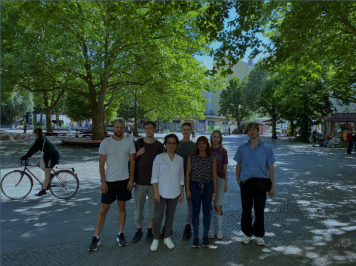StuROPx - Landscape of Urban Inequalities and Mental Health/Care in Berlin; Berlin University Alliance
By taking an interdisciplinary approach, the research group StuROPx – Landscape of Urban Inequalities and Mental Health/Care under the supervision of Dr. Nassim Mehran, in Berlin unfolds the impact of social inequalities in Berlin on the discourses, struggles, practices, and experiences of mental health. In addition, it highlights the relevant in/formal modes of solidarities and engagements. Mental health here is being investigated as a collective/individual resource, subject to an urban context with a set of material objects, social relations, and psychological processes. Themes incl. “housing,” “gardening,” and “space of psychiatry clinics,” were evaluated in the last semester. The participants, based on their interest, will conduct interviews with representatives of different social groups, experts from various disciplines, activists, or politicians. This elaborates our understanding of how mental health/care has been conceptualized, established, experienced, or spoken up by and the complex web of injustice structurally, materially, and discursively.
In October 2021, results of another study initiated by the team were published in the Journal of International Migration and Integration. The study collective of the study “Spatiality of Social Stress Experienced by Refugee Women in Initial Reception Centers” included refugee female persons from Syria and Afghanistan. The aim of the qualitative interviews was to take a closer look at the relationship between the spatial perception of nine different initial reception facilities in Berlin and the component of social stress. The study shows that social stress as in relation to intercultural needs is mainly triggered by a lack of privacy in those institutions. Privacy is not to be considered exclusively spatially, but more as control and freedom of everyday aspects and needs. The results of this study highlight persistent intercultural discrepancies in gender-sensitive approaches in the context of humanitarian support.
The full article can be found here: https://link.springer.com/article/10.1007/s12134-021-00890-6
